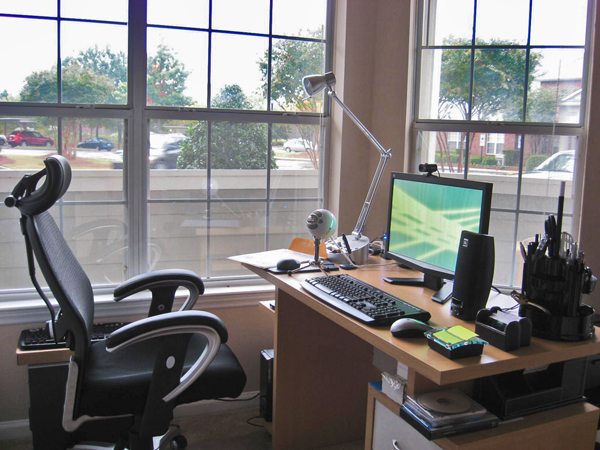The arrival of the Internet has brought us many benefits, such as a flood of information ready for consultation (often free of charge) and the ability to stay connected with people thousands of miles away.
But not only this.
Internet is also full of opportunities to make money online, working from home.
Building a comfortable office in a room at home is the dream of many.
It can be working as virtual assistant, or internet marketer, or social media expert or even freelance writer.
More traditionally known as ‘telecommuting’, remote working effectively refers to any job in which an employee doesn’t need to commute to a central workplace.
Whilst on paper it might sound too good to be true, the fact is that globally, 1 in 5 people currently in employment, do so from the comfort of their own homes, particularly in Latin America, Asia and the Middle East.
Pros
The convenience
The sheer convenience of being able to do your work wherever you are and whatever your current situation is without a doubt the most obvious positive factor that comes with working remotely.
The cost
If you’re looking at it from a business’s perspective the costs incurred by having to purchase or hire real estate in order to house employees can be astronomical.
By employing remote workers, you wouldn’t have to worry as much about letting out actual physical space as your workers will be able to do their jobs either from their own homes or indeed anywhere with a stable internet connection.
To give an example of just how much money could potentially be saved, it is estimated that IBM has saved itself a staggering $50 million dollars by offering remote work opportunities to its employees.
Flexibility
The flexibility of remote work can be incredibly attractive for many employees, especially those with busy or complicated home lives.
The flexibility for example, for employees to be able to deal with personal incidents, manage a family and bring up young children means that for young families or single parents mothers and fathers, remote work could be an ideal solution to a problem they didn’t even know they had.
Studies have also shown that many workers are more productive when they can work to their own schedule and the flexibility of remote work can allow them to do just that with impunity.
The commute
A study conducted by the Kelly Global Workforce Index revealed that almost 70% of employees listed the lack of a commute as the largest advantage for remote working.
Not only were workers thrilled that they didn’t have to stand head to armpit with a thousand other smaller commuters every morning but they were thrilled with the savings on petrol and/or public transport fares.
Stress
Most offices can be incredibly stressful environments that are ridden with distraction, noise and tense atmospheres.
Working away from the office can significantly improve an employee’s state of mind.
Cons
The loss of control
If an employee is working from home, there is no way for an employer to know with 100% certainty that their charges are working to the best of their abilities.
In fact, it can often be hard to tell if they are even working at all.
In a traditional office environment, it’s easy for a good boss to manage their employees and delegate tasks but if their only contact is over the phone or through email, the added incentive just isn’t there.
Taking your work home with you
There is a distinction that needs to be made between the work and the home life for workers to live happily and healthily.
Working remotely from home means it’s far more difficult for workers to make this distinction.
If an employee can’t differentiate their work lives from their home lives, the overspill could prove mentally fractious.
Limited work
Obviously there are certain jobs that would just not be feasible through remote work. The most common jobs are in the telecommunications sector and in the IT sector.
The vast majority of skilled jobs though (especially those involving some form of manual labour) would just not be applicable.
For example, a database specialist working as an IT technician in remote dba support services could quite easily make his calls and manage, tune and organise his clients databases from home, whereas a plumber or a surgeon would be flat out of luck (significant technological advances pending).
Networking
Though remote workers are connected to the office in a quite tangible way, missing out on the innovations and insight that can occur in meetings and between colleagues might prove too damaging for some.
There’s also the social aspect of the office that many employees might regret leaving behind.
Ultimately on a personal level, deciding whether or not remote working is for you depends very much on your field of expertise, your circumstances and your personality.
For companies looking into it though, there are certainly enough benefits to suggest that it’s an avenue at least worth exploring.



